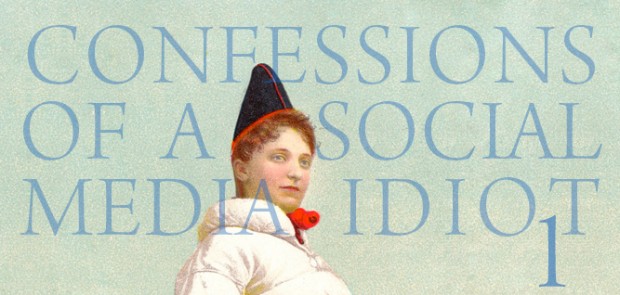If “Content is King,” Could Our King Be A Sloppy Drunk?

HERE’S A CONFESSION FOR YOU. Right now I feel like that party-pooper guy at the kegger. The one who blurts out that binge drinking can lead to stroke and sudden cardiac arrest. I don’t want to seem like that guy.
But I feel like it sometimes when I come across an orgy of grammatical errors and bad writing here on the Internet; not behind closed doors, but out in front of God and everybody, for all the world to see. It’s like it’s staggering in front of me with a lampshade on its head. Sloshing beer everywhere. Hooting loudly. I feel like I just gotta say something.
Hey, I can be a fun guy, too. I start sentences with “and” all the time. I use bad words like “gotta.” Did you perchance notice that in the previous paragraph, I abused two dependent clauses in a row?
My problem is that now, at the dawn of a new era in communications, when some are claiming content is king, it might be they believe any content will do, even badly written stuff.
I’m not talking about Tonight Show Funny Headlines, but articles from apparently respected sources; ones who claim authority on the subject of effective communications and then write poorly. I don’t want to be the party-pooper. I don’t want to be a know-it-all or someone who must elevate himself by debasing others. I just think it’s important enough to raise the issue.
I suppose the straw that broke the camel’s back for me came in the form of two recent articles on LinkedIn. Each was full of misspellings, grammatical errors, and just plain awful construction, but I knew it wasn’t simply a matter of ignorance. These articles were written by professionals seemingly knowledgeable on the subject of social media and online communication. But it appeared more important to them to get things uploaded, and fast, than to make them intelligible. And that suggests they believe in Quantity Over Quality.
The writing in the second article was so bad, I felt that rather than criticize the author in the comments section, I should offer suggestions, just as an editor might do; so I did. I also gently proffered that the inconsistent quality in his article might actually lead some to wonder (as I actually had) if he’d, uh maybe, sort of, perhaps, patched it together out of sections he’d plagiarized from other articles? Maybe?
And therein lies a big part of my concern: credibility. It takes a pretty cynical LinkedIn Influencer to think that “content” can mean anything that takes up space on a web page. And while the very social nature of this new paradigm means those folks will eventually be found out and brushed aside, everyone else involved in creating and disseminating worthwhile content loses a little bit of credibility in the process.
But even if you’re not the writer, even if you’re just the reader, I hope you share my concern. I hope you’d prefer reading something worthwhile, and not just Five Easy Ways To Wander The Internet Aimlessly Throughout Page After Page Of Pointless Drivel. Thank you for speaking up as well, if and when the opportunity arises.